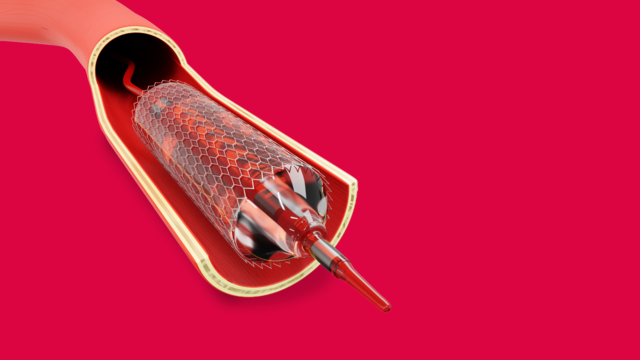

We use embolisation to treat certain cancers and non-cancerous growths
What is embolisation?
Almost any area of the body can be treated with embolisation to control or stop irregular bleeding. Embolisation is frequently used to treat the following conditions:
- Certain cancers and non-cancerous growths through prostatic artery embolisation (PAE) and uterine fibroid embolisation (UFE). The discomfort brought on by tumour bleeding can be lessened by embolisation.
- Bleeding that follows a severe injury. This therapy is well suited for controlling bleeding in the abdomen or pelvis.
- Bleeding from lesions in the digestive tract, such as ulcers or diverticulitis. In cases of gastrointestinal bleeding from any source, embolisation is frequently used as the first line of therapy.
- Bleeding caused by vascular abnormalities.
What is prostatic embolisation?
Benign prostatic hyperplasia (BPH) causes discomfort in the lower urinary tract that can be alleviated with a minimally invasive procedure called prostatic artery embolisation (PAE). The most frequent benign tumour identified in men is BPH, which is an enlargement of the prostate gland that is not malignant.
What are the symptoms of BPH
- Urgent or frequent need to urinate.
- Increased frequency of urination at night (nocturia)
- Difficulty urinating.
- Inconsistent urine stream
- Dribbling at the end of urination.
- Inability to empty the bladder.
What is uterine fibroid embolisation?
What are uterine fibroids, and how do they occur?
Fibroid tumours are benign, non-cancerous growths that form in the uterine muscle. Although fibroids do not usually manifest symptoms, for some women, they can cause discomfort and severe bleeding due to their size and placement. After menopause, when the blood level of the feminine hormone oestrogen drastically drops, they usually get better. However, menopausal women receiving hormone replacement treatment and more oestrogen may not experience any symptom relief.
Symptoms of fibroids?
Depending on location, size and number of fibroids, they may cause:
- Heavy, prolonged and irregular menstrual periods
- Pelvic pain, pressure or heaviness
- Frequent back or leg pains
- Pain during sexual intercourse
- Bladder pressure causing a constant urge to urinate
- Bowel pressure, leading to constipation and bloating
- Abnormally enlarged abdomen
Benefits of embolisation
Embolisation is non-surgical and minimally invasive, which means you will experience:
- Less pain
- Low risk of infection
- Short hospital stays
- Quick recovery time
- Less scarring
Our interventional radiologists, Dr Hammed Ninalowo and Dr Benjamin Dabo Sarkodie are highly trained to perform PAE, UFE, and other minimally invasive procedures.
To book your appointment visit https://euracarehealth.com/appointment/ or contact
Dr Hammed Ninalowo (Nigeria)
+234 700 3872 2273
Dr Dr Benjamin Dabo Sarkodie (Ghana)
+233 500 809 024
To learn more about prostate cancer, visit our YouTube channel. Also, watch our UFE video here.
Home page

